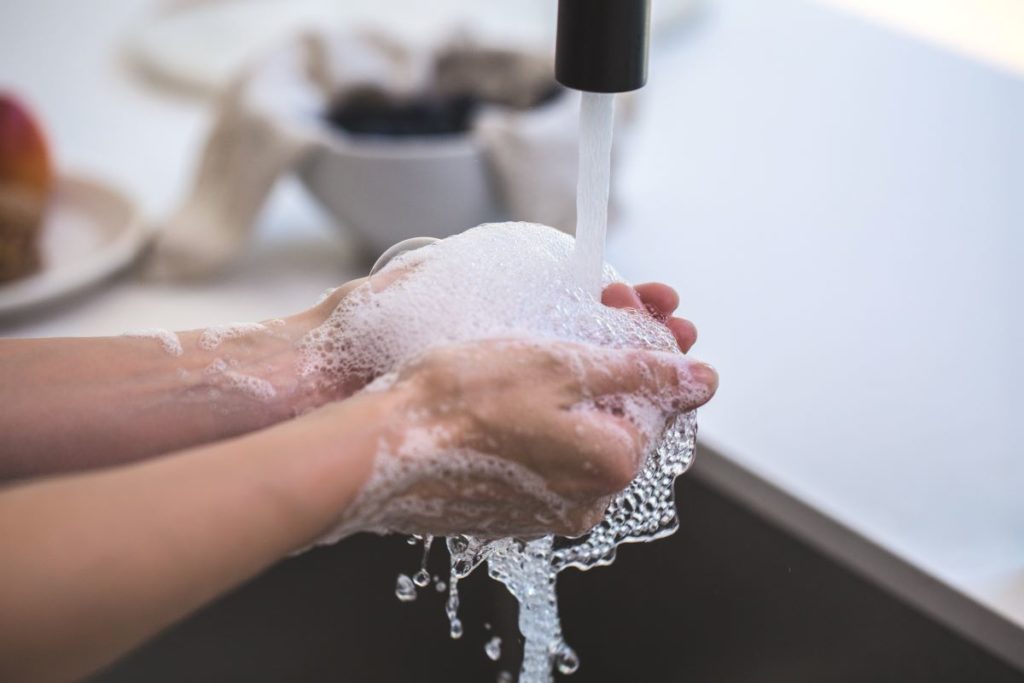We might not think too much about them, but certain habits we have in the bathroom may not be all that healthy. Yes, the bathroom is a place for privacy, bodily functions, and sometimes, solace. But it’s also one of the dirtiest rooms that we frequent in our daily lives and even the most spotless-looking surfaces and Lysol-smelling air don’t change that. Here’s a list of healthy and hygienic habits worth getting into when you visit the bathroom.
1. Practice good hygiene
The COVID-19 pandemic has highlighted the importance of good hygiene practices, such as washing your hands with soap and water. But the truth is that, pandemic or not, we should all have been doing this all along. Always wash your hands before leaving the bathroom, even if you only went in to cry. If drying your hands from excessive washing or sanitizing is your worry, then carry a small tube of hand lotion with you for after you wash.

You should use the bidet. Wiping yourself after using the toilet isn’t enough and increases your chances of getting hemorrhoids and urinary tract infections, among other issues. Excessive wiping can also irritate your skin. Bidet usage will also help you cut down your consumption of toilet paper.
2. Avoid bringing your phone to the bathroom
Our phones already carry an inordinate amount of germs and it will only worsen if you bring it into the bathroom. Using it while you’re on the toilet to help you pass the time might encourage you to stay longer too. Staying on the toilet for longer than you should could put you at risk for hemorrhoids. Whether or not you bring your phone to the bathroom, it’s a good idea to disinfect it regularly.
3. Put the lid down on the toilet when you have to flush it
Whatever is in a toilet gets distributed into the air in tiny particles when you flush it without putting the lid down first. This phenomenon is known as a toilet plume, and it can reach as high as 15 feet. Low-flow toilets, which consume less water when flushing, minimize the aerosol plume. So if you’re looking to cut your water bills and lessen the amount of bacteria that are aerosolized when you flush, low-flow toilets are an investment worth looking into. Still, it’s best to cover your toilet before you flush it. If you’re using a public toilet that doesn’t have a lid, flush and get out of the way immediately.
Doing this at home will also benefit your pets, who tend to gravitate towards bowls of water and drink from them. Even if you’ve just cleaned your toilet, the chemicals you used to disinfect them are not good for your pets to drink.
4. Keep your toothbrush far away from the toilet
Our previous tip was already hinting at this. Remember that your toothbrush goes inside your mouth. When you’re not using it, keep it away from your toilet.
5. Clean surfaces in your bathroom
Bathrooms tend to be very humid areas, and moisture is a breeding ground for bacteria. Make sure to regularly clean surfaces in your bathrooms such as sinks, counters, flush handles, toilet seats, and doorknobs. Showerheads are also overlooked in terms of how much bacteria they contain so see to it that you clean them every few uses.
Related: 8 Everyday Things That Are Dirtier Than a Toilet
6. Don’t eat in the bathroom
Because human waste is aerosolized whenever you flush, it’s not a good idea to eat in the bathroom, especially if it’s a public restroom. Some people can’t resist having a glass of wine while they’re soaking in the tub at home, and that’s okay. It’s easier to control your environment in your own space. But in public restrooms, you can’t trust other people to close the lid on the toilet before they flush, so it’s safe to assume that the office bathroom is not a sanitary place to have your lunch.
Related: What Work Bathrooms Reveal About Modern Office Culture
7. Don’t share products
When using a shared bathroom, we all know that we shouldn’t be sharing toothbrushes, but that extends to other personal hygiene products as well. Some of the products you shouldn’t share include makeup products, makeup applicators, razors, bar soaps, towels, and loofahs.
Practicing good hygiene is important, but even more so when you’re using the bathroom. The tips we listed above are healthy and hygienic bathroom habits that we encourage you to start. Practicing them will benefit you and the others who will use the bathroom after you.

